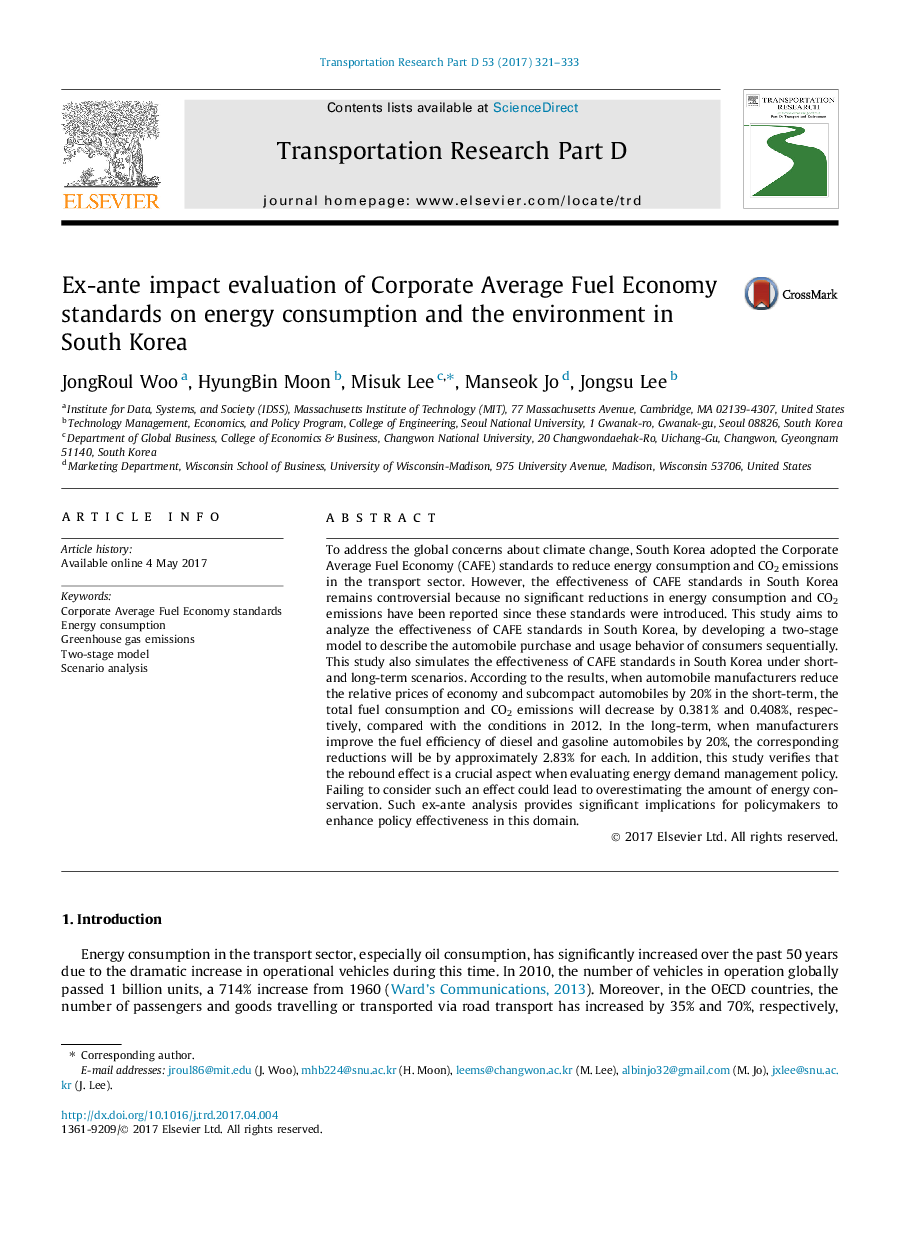| کد مقاله | کد نشریه | سال انتشار | مقاله انگلیسی | نسخه تمام متن |
|---|---|---|---|---|
| 5119435 | 1485871 | 2017 | 13 صفحه PDF | دانلود رایگان |
- Study objective-to analyze effectiveness of CAFE standards using a two-stage model.
- Model describes consumers' automobile purchase and usage behavior sequentially.
- Study environmental effects of CAFE standards under short- and long-term scenarios.
- Rebound effect is crucial in evaluating the energy demand management policy.
To address the global concerns about climate change, South Korea adopted the Corporate Average Fuel Economy (CAFE) standards to reduce energy consumption and CO2 emissions in the transport sector. However, the effectiveness of CAFE standards in South Korea remains controversial because no significant reductions in energy consumption and CO2 emissions have been reported since these standards were introduced. This study aims to analyze the effectiveness of CAFE standards in South Korea, by developing a two-stage model to describe the automobile purchase and usage behavior of consumers sequentially. This study also simulates the effectiveness of CAFE standards in South Korea under short- and long-term scenarios. According to the results, when automobile manufacturers reduce the relative prices of economy and subcompact automobiles by 20% in the short-term, the total fuel consumption and CO2 emissions will decrease by 0.381% and 0.408%, respectively, compared with the conditions in 2012. In the long-term, when manufacturers improve the fuel efficiency of diesel and gasoline automobiles by 20%, the corresponding reductions will be by approximately 2.83% for each. In addition, this study verifies that the rebound effect is a crucial aspect when evaluating energy demand management policy. Failing to consider such an effect could lead to overestimating the amount of energy conservation. Such ex-ante analysis provides significant implications for policymakers to enhance policy effectiveness in this domain.
Journal: Transportation Research Part D: Transport and Environment - Volume 53, June 2017, Pages 321-333
